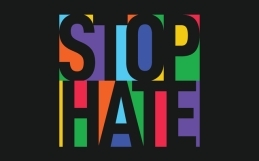“People who change the world have declared independence from other people’s expectations!”
–Unknown
One of the biggest factors that keeps us from being true to ourselves and reaching our potential is fear of criticism. If you’ve struggled with people pleasing syndrome like I have, you’re basically addicted to others’ approval of you. Somehow you were led to believe that other people’s approval gives you value as a person. In the past, my self-worth, self-esteem, and value were tied into being liked and approved of by other people. When this is the case, you believe your emotional health is contingent on the approval of others; in most cases, that’s because you’ve given them that control over your life.
When you’ve handed over control of your life, any criticism of you, your work, or your decisions can be heartbreaking, earth shattering, and majorly upsetting. Because you’ve placed so much value on other people’s opinions of your worth, they have the potential to shatter you. People pleasers take criticism very personally—mainly because they can’t separate themselves from their own actions. Recognizing the difference between the person you are and the things you do is vital in the process of no longer devaluing yourself due to criticism from others. Your worth as a person can never be negated or degraded based on the discouraging words of another. No one else can ever have that much power over your life and, more importantly, how you feel about yourself. As personal development writer, Cynthia Kersy put it, “The negative comments of others merely reflect their limitations—not yours.” The words people say speak more about them than they do about you. If you can remember that the next time someone tries to be a critic of your life and your choices, you won’t take their words to heart and won’t assign them any meaning or significance about who you are as a person.
Do you ever criticize yourself?
“Other people and things can stop you temporarily. You are the only one who can do it permanently.”
–Zig Ziglar
The worst kind of criticism is the kind you internalize and use against yourself as your own worse critic. In the past, I was often my biggest hater, critic, and enemy. I learned that the inner critic we all have inside of us can be the cruelest and most unforgiving. The negative narratives we tell ourselves about ourselves prevent us from finding our purpose and meaning. We then get stuck in jobs we hate, relationships that aren’t working, and lives that generally lack meaning.
I think our inner critic grows out of the voices of the meanest critics from our past—the teacher, parent, coach, or grandparent who said we couldn’t do it. Their voices follow us as we get older and over time develop into the inner critic. That critic’s voice becomes so loud that it doesn’t allow us to chase our dreams, follow our purpose, or realize our true potential. I am sure you have tried to get rid of that hateful voice by trying to ignore it or, perhaps, listening to what it has to say. Maybe you allow it to tell you who you are and what you’re capable of.
If you want to stop letting your inner critic defeat you, you first have to come to terms with the fact that the voice exists and understand that it doesn’t speak the truth about who you are and what you can accomplish. My inner critic was so debilitating that I almost didn’t pursue my doctoral degree. I wish I could go back to my younger self and whisper, “You can do it. Don’t look at the statistics. Don’t put your value on those standardized test scores. Stop calling yourself stupid.” I was so cruel to myself because I didn’t have a photographic memory. I thought I wasn’t smart because I actually had to put in long hours of studying to get good grades. I see now that I had set unrealistic and impossible standards for myself. My inner voice was merely mimicking the voices of my middle school bullies and tough private school teachers. I was only able to turn down the volume on my inner critic once I realized those thoughts were not my own. I signed a peace treaty with myself and kept moving forward in pursuit of my goals. With every step forward and every accomplishment, the voices got increasingly quieter until I didn’t hear them anymore. I think it’s important to prove your inner and outer critics wrong. Show them that their words don’t and won’t speak the truth about who you are and what you can accomplish.
Your life is valuable, and you don’t want to miss out on it because of what other people have to say. You may have dreams of becoming a teacher, nurse, doctor, musician, famous actor, or world’s greatest mom or dad. Your goals are personal, and only you know what urges you to wake up in the morning. As Mastin Kipp said, “But, if you’re waiting for the world or your circumstances to change first—you’ll just keep yourself stuck.” It’s up to you and no one else to shut up those negative voices and go for whatever it is you want to try. Below are some summed up inspirational stories from Cynthia Kersey, the best-selling author of Unstoppable: 45 Powerful Stories of Perseverance and Triumph from People Just Like You.
1. Fashion photographer Richard Avedon tried to convince Cher that she didn’t have the right look to be a model. He told her flat out, “You will never make the cover of Vogue because you don’t have blond hair or blue eyes.” When she did become a model, Vogue sold more copies than it had ever sold before.
2. When Gustave Leven was making plans to launch Perrier in the United States, several consulting firms advised him, “You’re foolish to try to sell sparkling water in the land of Coca-Cola drinkers.”
3. A New York publisher told James Michener after reading his first unpublished manuscript, “You’re a good editor with a promising future in the business. Why would you want to throw it all away to try to be a writer? I read your book. Frankly, it’s not really that good.” Michener’s manuscript, titled Tales of the South Pacific, was eventually sold, later won a Pulitzer Prize, and went on to be adapted for stage and screen as South Pacific.
These are just a few examples of people who were told they couldn’t do it and then did. It’s always hard to be criticized, and it’s especially hard when the critic is someone in a position of power. Maybe the critics were well-intentioned and only trying to be “realistic.” I, for one, am happy I didn’t listen to my high school teacher who told me that only one percent of Americans get Ph.D.s, and even if I got into graduate school for my doctorate, I’d have a hard time completing it, since most Ph.D. programs average a 30% completion rate. She was trying to lead me toward career choices that she thought would be more “suitable” for my test scores and grades. That teacher’s voice followed me all the way through my academic career, discouraging me but also pushed me. There’s nothing I love more than proving people wrong when it comes to chasing my dreams. I worked hard and made a lot of sacrifices, but now I can live the rest of my life as a therapist and professor, helping others live to their potential.
There’s an African Proverb that states, “When there is no enemy within, the enemies outside cannot hurt you.” I’m grateful every day for never letting my inner and outer critics tell me who I am or what I can become. I wish the same for you.
Talk soon,
Dr. Ilene
Article edited by Dr. Denise Fournier





